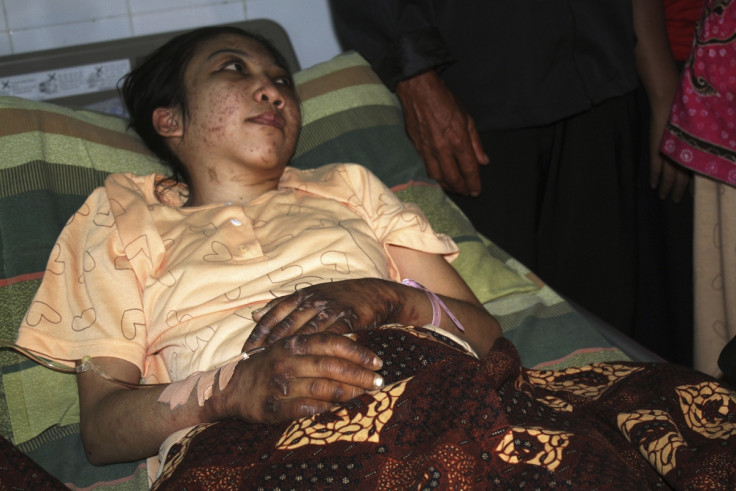Hong Kong woman guilty of torturing Indonesian maid Erwiana Sulistyaningsih

A Hong Kong woman has been found guilty of torturing her Indonesian maid in a case that has sparked international outrage.
Law Wan-tung was accused of grievous bodily harm against her 22-year-old maid Erwiana Sulistyaningsih, which included scolding her repeatedly with boiling water, as well as other charges of criminal intimidation, and failure to pay wages or give time off work.
Law, a former beautician, punched Sulistyaningsih in the mouth, fracturing her teeth and jammed a metal vacuum cleaner tube in her mouth. She also forced her to stand naked in the bathroom in winter while she splashed water on her and pointed a fan at her.
Photos of her injuries circulated a year ago show the young woman's face, hands and legs covered with scabs and lacerations, and blackened, with peeling skin around her feet.
When Sulistyaningsih left Hong Kong in January 2014 to return to Indonesia, doctors stated the burns on her body were caused by boiling water.
The case highlighted the conditions thousands of maids suffer in Asia's financial centre, described by Amnesty International as the equivalent to modern-day slavery.
The city's residents employ about 300,000 maids from across Asia.
Sulistyaningsih was found guilty of 18 out of 20 charges. The other two charges related to her treatment of another two maids, also from Indonesia.
Judge Amanda Woodcock said that based on the testimony by the maid and other witnesses: "I am sure the defendant did assault, wound and threaten (Sulistyaningsih) as charged."
Law Wan-tung was ordered to pay US$3,700 (£2,430) in outstanding wages to Sulistyaningsih. She is due to be sentenced on 27 February.
Erwiana told AFP after the verdict she was "very happy" and said a prayer of gratitude outside the court room.

© Copyright IBTimes 2025. All rights reserved.




















